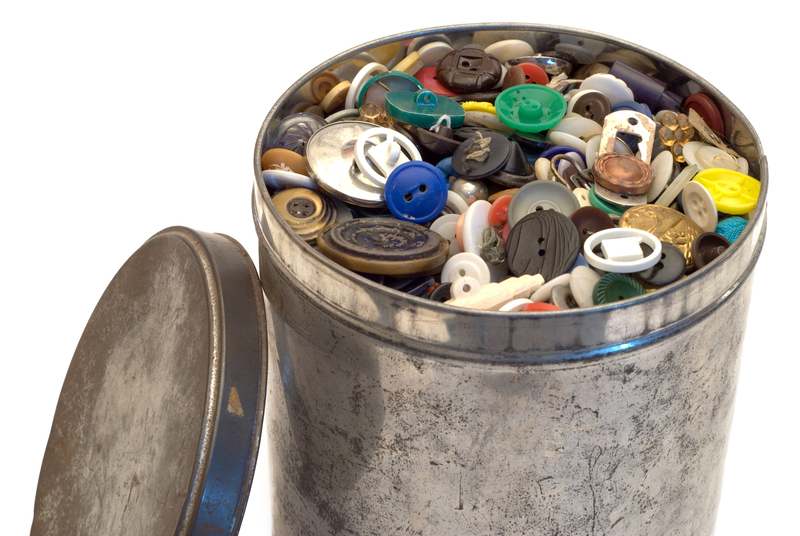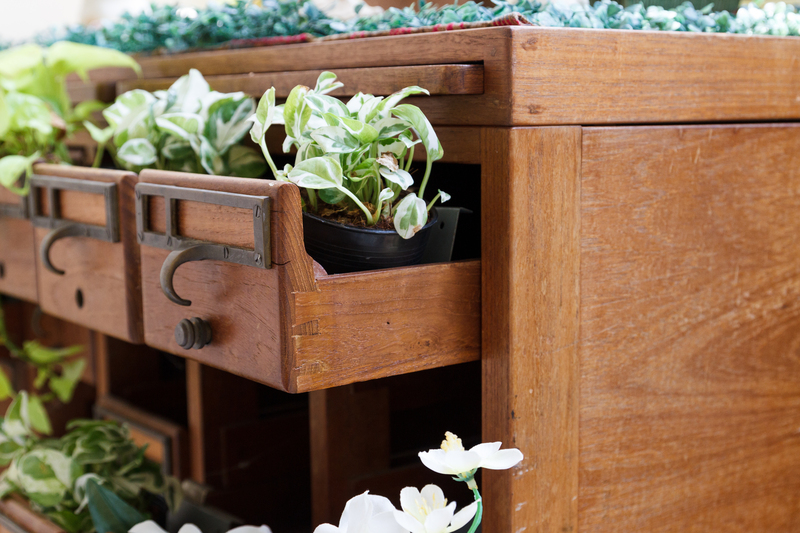How to Save on Bulky Waste Collection with These Simple Steps
Are you planning to clear out your home, office, or garden this season? If so, you might be facing the challenge of disposing of bulky items like old furniture, mattresses, large appliances, or garden debris. Bulky waste collection can get expensive if you're not aware of your options, but with the right strategies, you can keep costs low and manage your waste responsibly. In this guide, we'll outline simple steps to save money on large item disposal, provide useful tips on preparing your waste, and highlight the smartest ways to find affordable removal services.

Understanding Bulky Waste Collection: What You Need to Know
Before diving into savings strategies, let's clarify what qualifies as bulky waste. Bulky waste includes items that are too large or heavy for regular curbside collection. Examples include:
- Furniture (sofas, wardrobes, tables, chairs)
- Large household appliances (fridges, washing machines, ovens)
- Beds, mattresses, and carpets
- Garden waste (branches, large bags of soil)
- Construction debris (doors, windows, bathtubs)
Most local councils and private companies offer collection services for these large items, but fees and guidelines can vary significantly. Some services charge per item, while others charge by load volume or weight. To save money on bulky waste collection, it's important to explore every avenue before booking a pickup.
Step 1: Plan Your Bulky Waste Disposal in Advance
One common mistake people make is waiting until the last moment to arrange a collection. Planning early allows you to compare options, group items together, and avoid costly rush fees. Here's how advance planning helps you save:
- Consolidate waste: Gather all items you wish to dispose of at once. Some services offer bulk discounts for multiple items.
- Reduce volume: Disassemble furniture or break down items where possible. Smaller, compact loads often cost less to collect.
- Schedule off-peak: Some collection companies offer lower rates during less busy periods. Ask for availability outside weekends or holidays.
By handling your waste disposal efficiently, you can cut down on unnecessary trips, save time, and minimize fees.
Step 2: Use Local Authority (Council) Collections Where Possible
Many local councils offer bulky item collection services at subsidized rates--or even for free in some areas. Check your council's website for their policies on large waste.
- Free quotas: Some councils allow a certain number of free collections per year--don't let them go to waste!
- Lower rates for residents: Resident discounts may apply compared to hiring private removal companies.
- Specific item lists: Councils may only accept certain items. Review their lists to avoid booking supplementary services unnecessarily.
Tip: Booking well in advance is crucial, as council services can get busy during spring cleaning seasons or after local events.
Step 3: Shop Around for Affordable Private Bulky Waste Removal
If your local authority doesn't cover your needs or your collection quota has been used up, private bulky waste collection companies are your next option. Prices and packages can vary widely!
To secure the best deal, try the following methods:
- Compare multiple quotes: Get at least three different estimates. Online marketplaces make comparison easy.
- Ask about volume pricing: If you have a lot of waste, volume or weight-based pricing can be cheaper than per-item rates.
- Group collections: Team up with neighbors or friends for group bookings and split the cost.
Bonus tip: Look for companies with transparent pricing and excellent reviews to avoid hidden fees.
Beware of Rogue Operators!
Always check that any removal company is licensed and insured. Fly tipping is illegal, and if your waste ends up dumped by an unlicensed carrier, you could be fined. Verify credentials before booking and ask for a waste transfer note as proof of lawful disposal.
Step 4: Donate, Reuse, or Sell Your Bulky Items
The cheapest and greenest way to reduce bulky waste collection costs is simply not to dispose of the item! Consider if your unwanted items could find a new home before paying for removal.
- Donate: Charities, shelters, and reuse organizations often collect clean, usable furniture and appliances free of charge--and sometimes even offer collections.
- Sell online: Use websites like Facebook Marketplace, Gumtree, eBay, or local WhatsApp groups. Many buyers are willing to collect from your doorstep.
- Give away: Platforms like Freecycle or local Facebook groups make it easy to pass on items for free, minimizing your waste and helping others.
- Repurpose: Get creative! Old wood, metal, or soft furnishings can be upcycled into new DIY projects.
By extending the life of your items, you're not only saving on large waste collection fees but also benefitting the environment.
Step 5: Transport Bulky Waste to a Recycling Centre Yourself
If you own a suitable vehicle--or can borrow one--it usually costs nothing to bring your items to a local recycling centre or "tip". Many centers accept large household items, electronics, and garden waste at no charge for residents.
Advice if you go this route:
- Check restrictions: Some centers only allow small trailers or vehicles under a certain size. Pre-book your slot if required.
- Sort your waste: Separate it into wood, metal, electronics, and general waste for faster, easier drop-off.
- Bring proof of address: Many centers require ID to confirm local residency and prevent commercial dumping.
This is one of the most cost-effective ways to dispose of bulky waste if you have the resources and time. Just remember to follow safety guidelines--lifting heavy items alone can be dangerous, so enlist a friend for help.
Step 6: Prepare Your Bulky Waste Properly for Collection
Preparation can save you money! Many collection services charge extra fees for difficult or hazardous pickups. Avoid these charges by:
- Emptying appliances and furniture before collection.
- Disassembling bulky items (like beds or wardrobes), making them easier and cheaper to remove.
- Bagging loose debris so it's neat and safe to handle.
- Moving items as close to the collection point or curbside as possible--some services charge more for carrying things over distance or upstairs.
Tip: If in doubt, contact your collector in advance to clarify their requirements. Well-prepared waste can be collected faster, minimizing labor and costs.
Step 7: Avoid Penalties and Extra Fees
Nothing inflates the cost of bulky waste collection like unexpected penalty charges. To avoid these, make sure to:
- Only put out the items you declared during booking.
- Follow rules on hazardous or prohibited waste (paint, chemicals, asbestos, etc.).
- Leave waste out at the allotted time--missed appointments can incur a fee.
Not following collection guidelines can lead to refused pickups, rebooking charges, or fines, so always check what's required in advance.
Extra Money-Saving Tips for Bulky Waste Collection
- Seasonal discounts: Some companies offer deals in less busy months.
- Look for council recycling events: Periodic local events allow residents to dispose of large items for free or at reduced rates.
- Share resources: Borrow a friend's van or organize a community collection day to split costs and effort.
Environmental Benefits: Why Smart Bulky Waste Disposal Matters
Choosing sustainable options for your unwanted furniture, appliances, and other large items isn't just about cutting costs. Responsible disposal:
- Limits landfill waste and reduces carbon footprint
- Enables recycling of valuable materials
- Helps charities and low-income families access quality goods
- Keeps your neighborhood clean and safe
Whenever possible, prioritize reusing and recycling over throwing everything away. Smart bulky waste management is good for your wallet and the planet.

Frequently Asked Questions about Bulky Waste Collection
What items can I dispose of through bulky waste collection?
Most services accept large household items such as sofas, tables, chairs, mattresses, appliances, and garden equipment. However, hazardous materials, vehicle parts, and DIY/construction waste may be restricted or cost extra to remove. Always check with your provider.
How often can I use council bulky waste collection?
This varies by area. Many councils offer two to three collections per household per year. Additional pickups may be available for a fee.
Can I schedule a same-day bulky waste collection?
Some private companies provide fast or even same-day service for a premium. Councils typically require several days to weeks' notice, depending on demand.
Do I need to be present for collection?
Generally not, as long as items are left in the designated area (e.g., driveway, curb, or front garden). Some services require access codes or keys if items are in a secured location.
Conclusion: Save on Bulky Waste Collection With Smart Planning
Disposing of large and heavy items doesn't have to be a financial burden. By following these simple steps for bulky waste collection savings, you can minimize your costs and environmental impact:
- Plan ahead and consolidate your waste
- Use council collection services where available
- Shop around for the best private removal rates
- Donate, sell, or give away usable items
- Drop off items at recycling centers yourself if possible
- Prepare your waste carefully to avoid extra fees
With a bit of effort and knowledge, it's easy to save money on bulky waste management and help build a cleaner, more sustainable community. Next time you're faced with a large-scale cleanup, remember these smart, straightforward tips to keep both your costs and your carbon footprint as low as possible!
